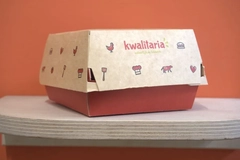Infrastructure and education shape household plastic disposal habits in India, finds study

A new study has analyzed the factors that affect people’s plastic purchasing and disposal behavior in India. The researchers highlight the importance of household circularity alongside sustainable supply chains to limit the country’s reliance on single-use plastic packaging.
The study concludes that India can potentially adapt its household waste management infrastructure to a circular economy if it understands the public’s relationship to waste infrastructure, access to education, and cultural values.
The research, published in Resources, Conservation and Recycling, finds that an individual’s access to waste management infrastructure, education, cultural beliefs, and governmental support are influential to plastic packaging and landfill reduction behavior.
Conducted by researchers from India and Australia, the study set out to understand the types of responsible plastic waste disposal behavior, household practices to reduce consumption and purchase of plastic packaging, and what external or internal factors influence household behavior.
The analysis of an online survey conducted by the research team revealed that while more than 70% of participants already practice moderate to high levels of plastic reduction and waste management, 21% are highly likely to reduce packaging use, and 33% are highly likely to reduce landfill waste.
Plastic packaging waste issues in India are heightened by insufficient waste collection and disposal systems, finds the study.“Although plastic waste consumption in India is low relative to the global average, the Indian economy is growing, and with this, a growing trend in plastic consumption and disposal of plastic waste,” say the researchers.
“The increased use of plastic packaging in India is unfortunately coupled with the problem of inappropriate collection and disposal of plastic waste.”
Plastic waste habits
The researchers conducted an online survey in June 2022 in three cities in India: Agra, Haridwar, and Panjim. These cities were chosen based on their diverse government and private sector circular plastics infrastructure levels.
The questionnaire focused on two types of household behavior: purchasing behavior of plastic packaging products and disposal behavior of plastic waste. It targeted at least 33% of participants from each city with incentives like gift cards and airline miles.
The researchers then analyzed the survey results using Social Practice Theory (SPT) and Bayesian Belief Networks (BBNs).
SPT determines the connection between material, competency, and meaning by understanding the link between practice and context within social situations.
BBNs provide a graphical model of the probable relationships between certain factors, like the impact of education, infrastructure, or cultural values on effective plastic waste disposal.
Circular future
 Waste management, education, and culture shape plastic use and disposal, according to the research. The study advocates for a circular economy where households purchase reusable or refillable packaging solutions to balance India’s growing economic activities and plastic production.
Waste management, education, and culture shape plastic use and disposal, according to the research. The study advocates for a circular economy where households purchase reusable or refillable packaging solutions to balance India’s growing economic activities and plastic production.
The online survey found that most participants (over 70%) already practice medium to high levels of reduced plastic packaging waste and reduced waste to landfill.
Moreover, 21% of the sample is highly likely to consume less plastic packaging, and 33% of the sample is highly likely to reduce waste in landfills.
The researchers also acknowledge that the survey samples only represent the more educated and high-income end of Indian society and caution against generalization, but also highlight that “our sample also represents the group of people with the highest purchasing power.”
For future research, the study advocates for observed purchasing decisions and disposal behavior, “for example, using digital tracking technology, instead of stated behavior such as the approach adopted in this research study, as that would provide more accurate estimates.”












